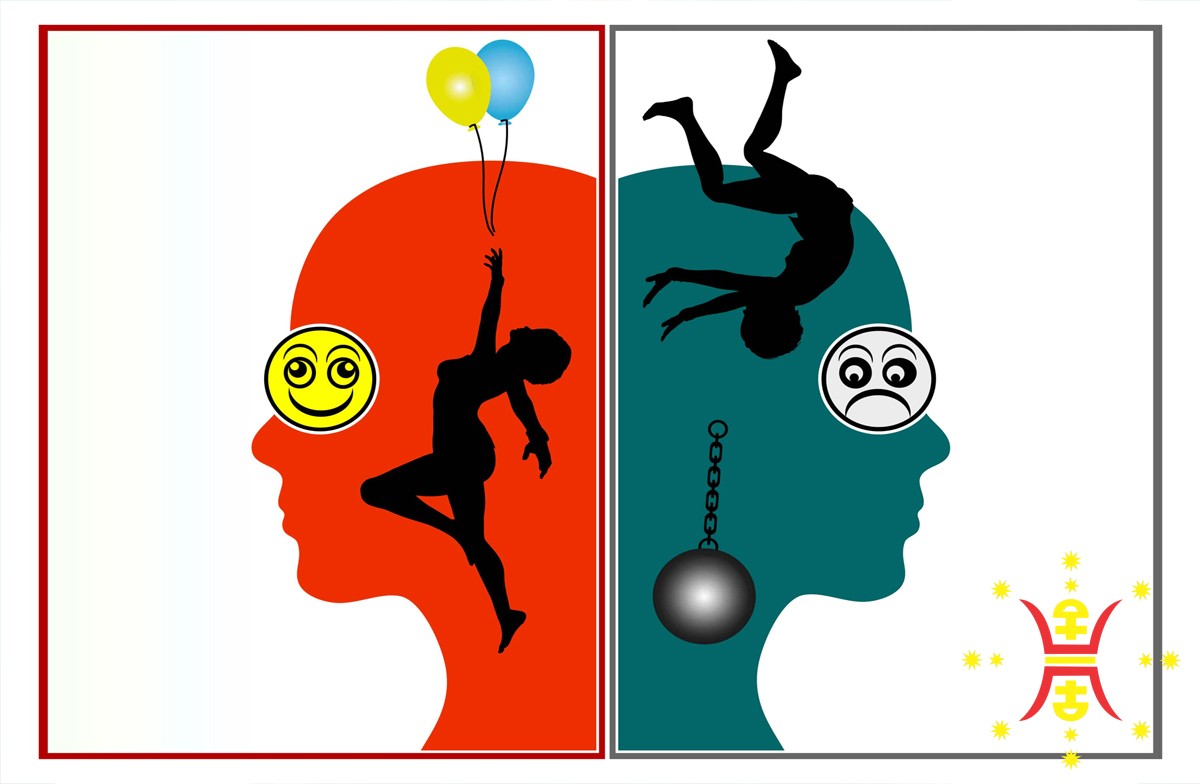Balancing the Mind: Traditional Chinese Medicine Perspectives on Bipolar Disorder
In Traditional Chinese Medicine (TCM), bipolar disorder is often considered within the framework of patterns of disharmony affecting the body's Qi (vital energy), Yin and Yang, and the various organs. Here's an overview of bipolar disorder in TCM:
- Definition in TCM:
- TCM may refer to bipolar disorder as a disturbance in the balance of Yin and Yang energies, leading to emotional and mental imbalances.
- Causes:
- Internal Imbalances: TCM views emotional and mental well-being as closely connected to the balance of internal organs and their corresponding energies. Factors such as liver Qi stagnation, heart-blood deficiency, or kidney Yin and Yang imbalances can contribute to emotional disturbances.
- Symptoms:
- TCM practitioners may observe and analyze a range of symptoms, including mood swings, irritability, insomnia, restlessness, and changes in appetite. They may also consider the patient's overall energy levels and the presence of physical symptoms.
- Patterns of Imbalance:
- Liver Qi Stagnation: Emotional stress and frustration leading to liver Qi stagnation can manifest as mood swings and irritability.
- Heart-Phlegm Fire: Excess heat and emotional disturbance affecting the heart may lead to symptoms of mania.
- Kidney Yin and Yang Imbalance: Disturbances in the kidney system can contribute to mental and emotional instability.
- TCM Treatment:
- Acupuncture: Points related to the liver, heart, and kidney meridians may be stimulated to balance the flow of Qi and harmonize emotions.
- Herbal Medicine: TCM herbal formulas containing herbs like Bupleurum (Chai Hu) for liver Qi stagnation or Rehmannia (Shu Di Huang) for nourishing kidney Yin may be prescribed based on the specific pattern of imbalance.
- Diet and Lifestyle:
- TCM practitioners may recommend dietary adjustments and lifestyle changes to support emotional balance. This could include avoiding stimulants, incorporating nourishing foods, and practicing relaxation techniques such as meditation or Qi Gong.
It's crucial to note that TCM is a holistic approach that considers the individual's overall health, lifestyle, and emotional well-being. While TCM can be complementary, individuals with bipolar disorder should also seek guidance from conventional medical professionals for a comprehensive treatment plan, which may include medication and psychotherapy. Collaborative care that integrates both TCM and conventional approaches is often recommended for a well-rounded approach to managing bipolar disorder.
In Person With Heshoutang Natural Health Members
With Heshoutang Natural Health Online Members
Fill Out the Questionnaire by yourself
When you subscribe to the blog, we will send you an e-mail when there are new updates on the site so you wouldn't miss them.














Comments